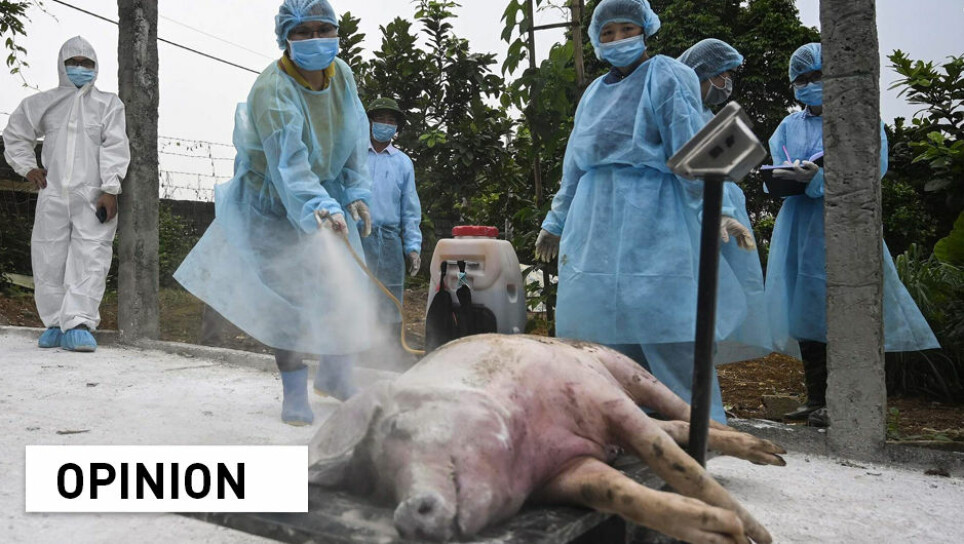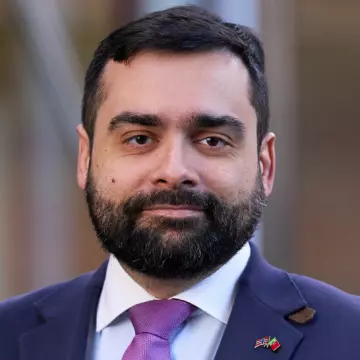Opinion:

Yes, we can prevent future pandemics
OPINION: With new health threats perhaps just an airflight away, we need to ask how countries like Norway can contribute in the global effort to prevent future pandemics.
As we hopefully soon will start seeing the results of the efforts against Covid-19, we must simultaneously prepare for new and potentially more serious pandemics. Preventing new pandemics is definitely a common global challenge.
Covid-19 is a human disease, with a likely origin in animals, which is not uncommon in the case of infectious diseases. Therefore, we need to understand what contacts between wild animals, livestock and humans mean when new infectious agents emerge. We know that most pandemics occur when viruses mutate, cross species barriers and spread among new species. These “host jumps” occur more often in tropical regions with great biodiversity, high population densities and frequent contact between humans, livestock and wild animals. Knowing this, can we also foresee where and when new pandemics can occur? Can we then prevent them or limit their harmful effects?
One health
Scientists around the world are united in answering yes, it is possible! However, it will require an interdisciplinary and holistic effort recognizing the interaction of all forms of life. The "One Health"-approach considers this by looking at public health, animal health and the environment as a whole. Without good animal health, we cannot ensure human health, and without healthy ecosystems, both humans and animals stand to suffer.
A sausage brought from abroad and thrown into the woods after a picnic may be enough.
One Health is, however, not just about pandemics and emerging infectious diseases. It is also about ensuring healthy and sustainable food production and -systems, and achieving a balanced use of natural resources in order for future generations to also have good lives interacting with nature.
A new health threat is just a flight away
In Norway, we are proud of the good animal health of our livestock, and rightly so! It is partly thanks to geography, but primarily it is the result of the close cooperation between industry and veterinary authorities over a long period of time. The challenge is that no matter how good we work at home, the situation can quickly change: a wild boar carrying African swine fever wandering across the border, a wild bird with avian influenza infecting a poultry flock, or one of us bringing home a serious new infectious pathogen after a tropical summer holiday, that is all it takes. A sausage brought from abroad and thrown into the woods after a picnic may be enough. A new health threat is just a flight away.
Covid-19 has disrupted international trade and raised concerns about national self-sufficiency. In the midst of the pandemic, for the first time in autumn of 2020, highly pathogenic avian influenza was detected in wild birds in Norway. Should this virus reach commercial poultry farming, it could lead to high animal mortality and challenge the national food production. We do not need an animal disease with the potential to kill thousands of food-producing animals in the midst of dealing with a pandemic in the human population.
What we do need is knowledge of the diseases and pathways of infection, monitoring health with an emphasis on early detection and an emergency response to deal with any outbreak. This requires systematic national work and coherent international cooperation as promoted by the "One Health"-approach.
EU and Norway together on animal health law
This April, the EU and Norway plan to implement a new animal health law that will help harmonize systems to protect animal health. It will, among other things, improve food security in countries and help safeguard citizens' health. In addition, the EU is talking about a pandemic prevention treaty. These initiatives are good examples of international "One Health" efforts that can also help us avoid new situations like Covid-19. However, if Norway wishes to be a strong contributor to global solutions, we need to reinforce the way we work with "One Health" at home as well. A national "One Health" platform, where relevant actors collaborate to disseminate information, develop ideas and share knowledge is a step in the right direction.
The next pandemic is unlikely to start in Norway. And our food production systems are not highly vulnerable to animal diseases right now. Nevertheless, we are never stronger than the weakest link. The best protection for our industries, our food production systems, our biodiversity, our economy and our health is to accept that in this world we are all in the same boat. We live on and of one common planet. This offers many opportunities, but the threats that challenge us all will also be deal best with common international solutions.
Norway cannot afford to stay outside the global cooperation that the world now needs. We must actively contribute to international and interdisciplinary cooperation under the framework of One Health.
Share your science or have an opinion in the Researchers' zone
The ScienceNorway Researchers' zone consists of opinions, blogs and popular science pieces written by researchers and scientists from or based in Norway. Want to contribute? Send us an email!





























